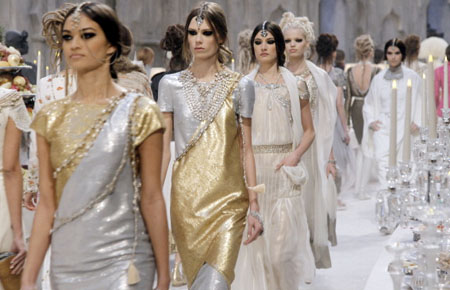New Delhi, Apr 23: The soaring temperature calls for new hair styles and British hair expert Bill Watson suggests Indian women be more bold with cuts and colours.
 He has been to various Indian cities like Mumbai, Hyderabad, Bangalore, Chennai and the national capital, and says that he hasn't seen "massive mistakes" when it comes to hairdos. His only complaint is that Indian women like to play it safe.
He has been to various Indian cities like Mumbai, Hyderabad, Bangalore, Chennai and the national capital, and says that he hasn't seen "massive mistakes" when it comes to hairdos. His only complaint is that Indian women like to play it safe.
"Indian women are beautiful. They have great bone structure. There are more options in haircuts than they realise," Watson, International Artistic Designer, Toni&Guy, which has five flagship salons in Delhi/NCR and plan to roll out 10 sub-franchise salons across north India along with a training academy here said during his visit here.
"They can do a lot with length and try different layering types. They need to be little more seasonal and experimental in their approach," he added.
He says colouring hair is one way to give up the old look.
"Play with colour. It doesn't have to be crazy. It will help to show details of the haircut. Colouring the ends is a fresh approach to wear it. Shades of pink and baby blue are cute. Colour helps haircut to come alive.
"Most women don't leave home without make-up, so why not try new things with colour...more around the face, the end. It revives the look and is nice and fun," he said.
Watson also advises natural look for summer season.
"During summer, a lot of clients like to go for the natural look and just blow dry for a little bit cleaner and shinier look. Hair treatments also become important and maintaining the colour too," he said.
And for cuts, get influenced by models on the runway!
"One of the biggest influences is the catwalk. We look at a lot of models with different hair shapes," he said and emphasised on the shoulder length bobs that are practical to wear too.





Comments
Add new comment